
Health Information Science and Systems
Scope & Guideline
Exploring the intersection of healthcare and information technology.
Introduction
Aims and Scopes
- Artificial Intelligence Applications in Healthcare:
The journal emphasizes the integration of AI technologies, such as machine learning and deep learning, to improve diagnostic accuracy, patient monitoring, and treatment personalization. - Data-Driven Healthcare Solutions:
There is a strong focus on leveraging big data analytics, health informatics, and computational models to inform clinical decisions and optimize healthcare operations. - Interdisciplinary Approaches to Health Issues:
Research often combines insights from computer science, biology, and clinical medicine to address complex health challenges, such as disease prediction and patient stratification. - Innovations in Medical Imaging and Signal Processing:
The journal publishes work on advanced imaging techniques and signal processing methods that enhance the detection and classification of various medical conditions. - Patient-Centric Health Technologies:
There is a consistent emphasis on developing systems that empower patients, improve health literacy, and facilitate better health outcomes through technology.
Trending and Emerging
- Explainable AI in Healthcare:
There is a notable increase in research dedicated to explainable AI, which addresses the need for transparency in AI-driven healthcare solutions, ensuring that clinicians can understand and trust AI recommendations. - Integration of Multi-Omics Data:
Recent publications highlight the trend of using multi-omics data integration for personalized medicine, aiming to enhance disease prediction and treatment strategies. - Telehealth and Remote Monitoring Technologies:
The COVID-19 pandemic has accelerated the development of telehealth solutions and remote patient monitoring systems, which are increasingly featured in recent studies. - Mental Health Analytics:
Emerging themes include the use of AI and data analytics to address mental health issues, such as depression detection through social media analysis and other innovative approaches. - Federated Learning and Data Privacy:
With growing concerns over data privacy, there is an increasing trend towards federated learning models that allow for collaborative data analysis without compromising patient confidentiality.
Declining or Waning
- Traditional Epidemiological Studies:
There seems to be a shift away from conventional epidemiological studies towards more computational and AI-driven methodologies, reflecting a growing preference for data-driven insights. - Basic Health Informatics Frameworks:
The focus on foundational health informatics frameworks appears to be waning, as the field increasingly prioritizes advanced applications of AI and machine learning over basic theoretical constructs. - Manual Data Analysis Techniques:
With the rise of automated and AI-enhanced techniques, traditional manual data analysis methods and their associated studies are becoming less prevalent in recent publications. - Generic Health Management Systems:
Research on generic health management systems seems to be declining as more specific, tailored solutions utilizing AI and big data analytics gain traction.
Similar Journals

BMC Medical Informatics and Decision Making
Advancing healthcare through innovative informatics.BMC Medical Informatics and Decision Making is a leading journal in the fields of medical informatics and health policy, published by BMC since its inception in 2001. With an impressive impact factor reflecting its status as a Q1 journal in both Computer Science Applications and Health Informatics, it serves as a vital resource for researchers, professionals, and students dedicated to advancing healthcare through informatics. The journal is committed to disseminating high-quality, peer-reviewed research focused on the innovative use of information technology in healthcare, decision-making processes, and policy formulation. As an Open Access platform, it ensures that findings are widely accessible and can foster collaboration across various disciplines. Positioned at the cutting edge of health informatics, BMC Medical Informatics and Decision Making aims to influence practice and inspire new research directions, making it an essential publication for anyone involved in improving health systems worldwide.
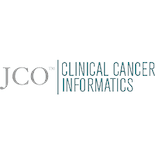
JCO Clinical Cancer Informatics
Advancing cancer care through innovative informatics.Welcome to JCO Clinical Cancer Informatics, an esteemed journal at the forefront of the intersection between oncology and health informatics. Published by Lippincott Williams & Wilkins, this journal is dedicated to advancing the understanding and application of cancer data through innovative informatics solutions. Since its inception in 2017, JCO Clinical Cancer Informatics has established itself as a critical resource for researchers, practitioners, and students, as evidenced by its high rankings in the 2023 Scimago Quartiles—Q2 in Cancer Research and Q1 in both Health Informatics and Oncology. With a commitment to open access, this journal aims to disseminate groundbreaking research findings that enhance cancer care and inform public health strategies. Positioned in the United States, it serves as a pivotal platform for sharing knowledge and fostering collaboration within the global cancer research community.
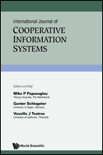
INTERNATIONAL JOURNAL OF COOPERATIVE INFORMATION SYSTEMS
Empowering Scholars Through Cooperative InnovationsINTERNATIONAL JOURNAL OF COOPERATIVE INFORMATION SYSTEMS
Published by WORLD SCIENTIFIC PUBL CO PTE LTD, the INTERNATIONAL JOURNAL OF COOPERATIVE INFORMATION SYSTEMS plays a pivotal role within the fields of Computer Science and Information Systems. With a focus on the development and application of cooperative information systems, this journal aims to foster innovation and collaborative research among scholars and professionals. Established in 1996, the journal has consistently published high-quality research that contributes to a better understanding of cooperative methodologies, enhancing system efficiencies across various applications. While its impact factor remains undisclosed, the journal is positioned in the Q4 category of the Scopus rankings, indicating a growing presence in the academic community. Although it does not offer open access, its rich repository of articles remains accessible to subscribers and relevant institutions. Located in Singapore, this journal will continue to serve as a critical resource for researchers, practitioners, and students keen on exploring the evolving dynamics of information systems in today's interconnected world.

Journal of Healthcare Informatics Research
Advancing healthcare through innovative informatics.The Journal of Healthcare Informatics Research, published by SPRINGERNATURE, serves as a premier platform for the dissemination of innovative research and insights at the intersection of healthcare and information technology. Established in 2017 and operating out of Switzerland, this journal covers a broad scope encompassing Artificial Intelligence, Computer Science Applications, Health Informatics, and Information Systems, achieving a Q1 ranking across these fields in 2023. Notably, it ranks impressively within Scopus, holding positions in the top percentages across various categories, including 12th in Health Informatics. With an unwavering commitment to fostering advancements in healthcare through informatics, this journal is designed for researchers, professionals, and students alike, providing open access to significant findings and methodologies that drive the future of health technology. As the field evolves, the Journal of Healthcare Informatics Research stands as a vital resource for those dedicated to improving patient outcomes and operational efficiencies through data-driven strategies.
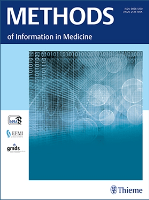
METHODS OF INFORMATION IN MEDICINE
Elevating Patient Care with Advanced Information Methodologies.METHODS OF INFORMATION IN MEDICINE, published by Georg Thieme Verlag KG, stands at the forefront of medical knowledge dissemination, pushing the boundaries of Advanced and Specialized Nursing, Health Informatics, and Health Information Management. Established in 1962, this prestigious journal has continuously evolved to address the dynamic landscape of healthcare and information technology, aiming to bridge the gap between clinical practice and innovative information technologies. With a robust impact factor reflected in its 2023 Scopus rankings, where it holds a commendable position in Q1 for Advanced Nursing, it serves as an invaluable resource for researchers, practitioners, and students alike. While it maintains a subscription-based access model, the journal fosters the exchange of pioneering methodologies and transformative ideas that are crucial for advancing healthcare delivery and improving patient outcomes. Explore the latest research, expert insights, and cutting-edge developments that solidify the journal’s role as a leader in the interdisciplinary approach to medicine and information systems.

Acta Informatica Pragensia
Connecting Scholars: A Hub for Interdisciplinary Research Excellence.Acta Informatica Pragensia is a prominent open access journal published by UNIV ECONOMICS, PRAGUE, which has been dedicated to advancing the fields of Computer Science Applications, Information Systems, Library and Information Sciences, and Management Information Systems since its inception in 2012. Situated in the beautiful Czech Republic, this journal aims to foster academic dialogue and disseminate high-quality research across these interdisciplinary domains. With an H-index indicating its growing impact, Acta Informatica Pragensia offers authors the opportunity to publish their findings in a Q4 ranked journal within significant categories according to the 2023 metrics, including a notable Q3 in Library and Information Sciences. Its placement in the Scopus ranks also showcases its relevance in the field, including a solid position in the 58th percentile for Library and Information Sciences. The journal's open access model ensures that research is widely available, empowering students, researchers, and professionals to engage with the latest innovations and trends. Submissions from diverse backgrounds are welcomed, making it an essential resource for those seeking to contribute to the evolution of information technology and systems.
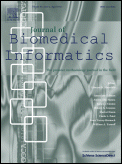
JOURNAL OF BIOMEDICAL INFORMATICS
Transforming biomedical research with cutting-edge informatics.JOURNAL OF BIOMEDICAL INFORMATICS, published by Academic Press Inc. Elsevier Science, is a premier peer-reviewed journal dedicated to the integration of computer science and health informatics to advance the field of biomedical engineering and healthcare. With its ISSN 1532-0464 and E-ISSN 1532-0480, this influential journal has established itself with an impressive impact factor, reflecting its high-quality research contributions. Recognized within the top quartile (Q1) of both Computer Science Applications and Health Informatics for 2023, the journal ranks #135 out of 817 in Computer Science Applications and #25 out of 138 in Health Informatics according to Scopus metrics. Offering open access options, it fosters extensive dissemination and accessibility of groundbreaking research findings to the scientific community. As a scholarly platform from 2001 to 2024, it is engineered to cater to the educational needs of researchers, professionals, and students, promoting innovative studies that bridge the gap between technology and healthcare.

Healthcare Technology Letters
Elevating patient care through data-driven innovations.Healthcare Technology Letters is a leading open-access journal published by WILEY that has been at the forefront of disseminating cutting-edge research in the field of health informatics and health information management since its inception in 2014. With an E-ISSN of 2053-3713, this esteemed journal is recognized for its commitment to advancing knowledge and practice in healthcare technology, making it a vital resource for researchers, professionals, and students alike. The journal's scope encompasses a wide range of topics, including digital health solutions, data management, and innovative technologies that enhance patient care. It holds a respectable position in the academic community, featuring a Q3 ranking in both health informatics and health information management as of 2023, and consistently contributing to high-impact research evidenced by its Scopus rankings. By providing open access to its content since 2017, Healthcare Technology Letters ensures that valuable insights and breakthroughs can reach a broader audience, furthering the impact of its published work on the global health landscape.
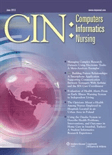
CIN-COMPUTERS INFORMATICS NURSING
Exploring New Frontiers in Nursing InformaticsCIN-COMPUTERS INFORMATICS NURSING is a distinguished journal that publishes cutting-edge research at the intersection of nursing and information technology. Published by Lippincott Williams & Wilkins, the journal has been a pivotal platform since 2002, catering to the needs of health informatics professionals and nursing researchers. With an impressive impact factor and ranked within Q2 in Nursing (miscellaneous) and other relevant categories, it serves as a key resource for advancing knowledge and best practices in the field. The journal's inclusion in important databases ensures broad visibility and access to the latest findings that influence healthcare delivery. CIN-COMPUTERS INFORMATICS NURSING welcomes a diverse range of articles, including empirical studies, reviews, and innovative methodology approaches, making it an invaluable asset for clinicians, educators, and scholars dedicated to enhancing nursing informatics and improving patient outcomes.

Health Information Management Journal
Innovating Health Systems with Cutting-Edge ResearchHealth Information Management Journal, published by SAGE Publications Inc., is a premier academic resource dedicated to the intersection of health informatics, health information management, health policy, and leadership in health services. With an impressive track record since its inception in 2002, this journal steadily contributes to scholarly dialogue and innovation in the field, holding a commendable Q2 ranking in Health Informatics, Health Information Management, and Health Policy, and a distinguished Q1 ranking in Leadership and Management as of 2023. As a critical platform for researchers, professionals, and students, it fosters the dissemination of cutting-edge research and practical applications, bridging the gap between theory and practice. Though not an open-access journal, it provides a wealth of subscription-based resources that are invaluable for advancing knowledge and improving health systems globally. The journal’s commitment to high-quality, peer-reviewed content ensures that it remains a vital tool for anyone invested in the future of health information management.